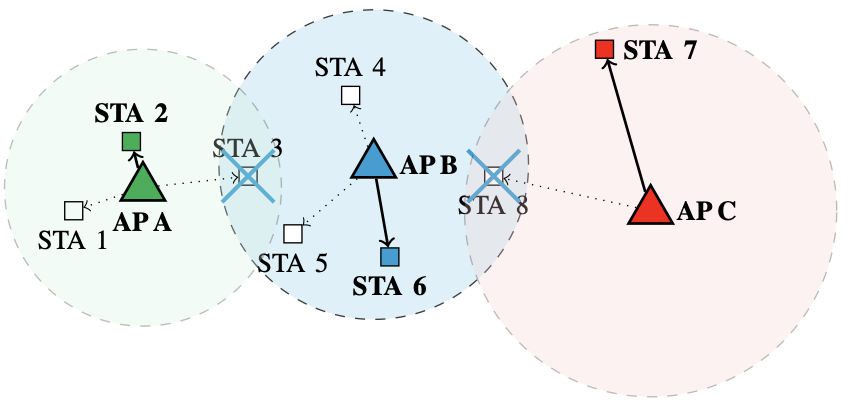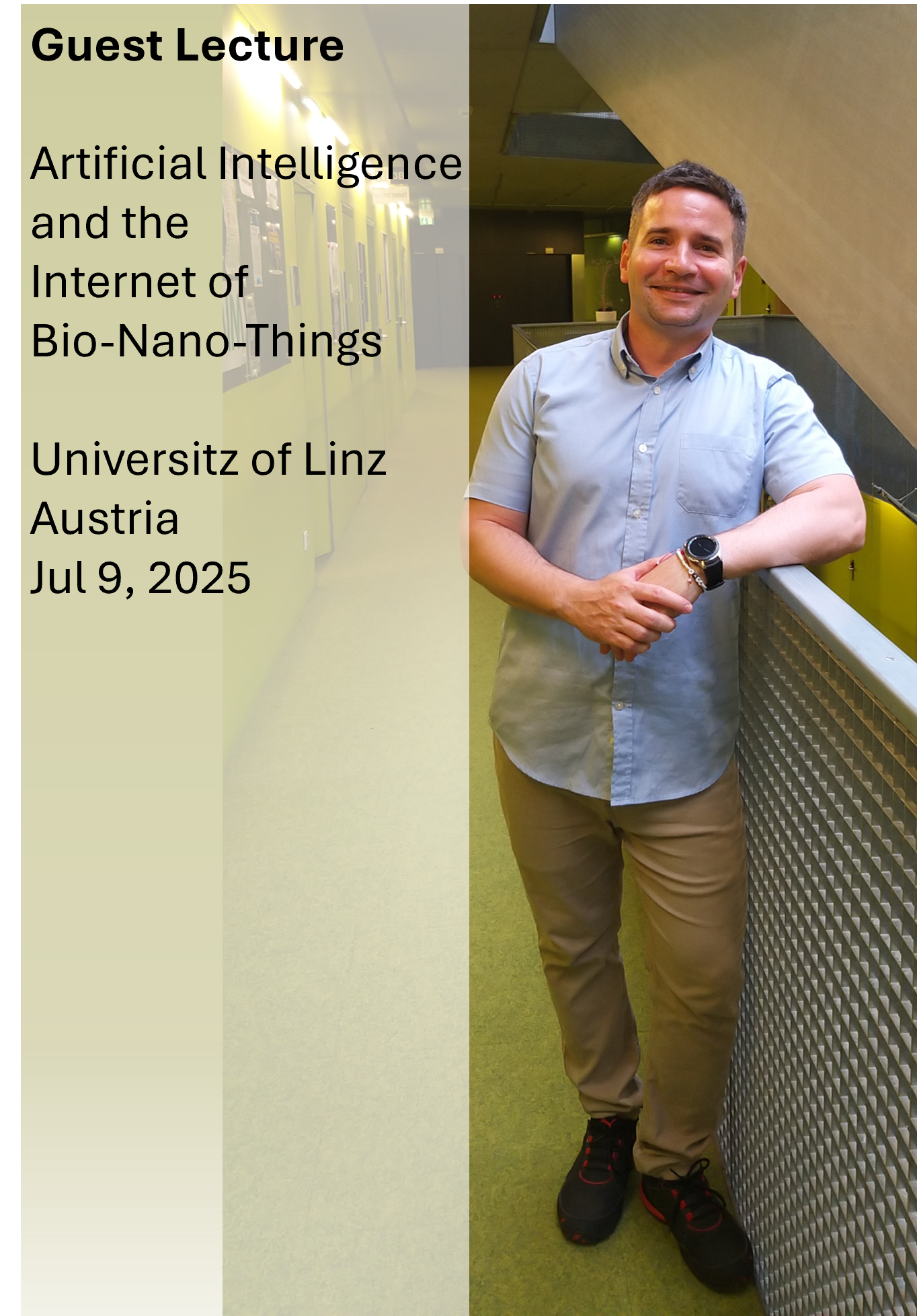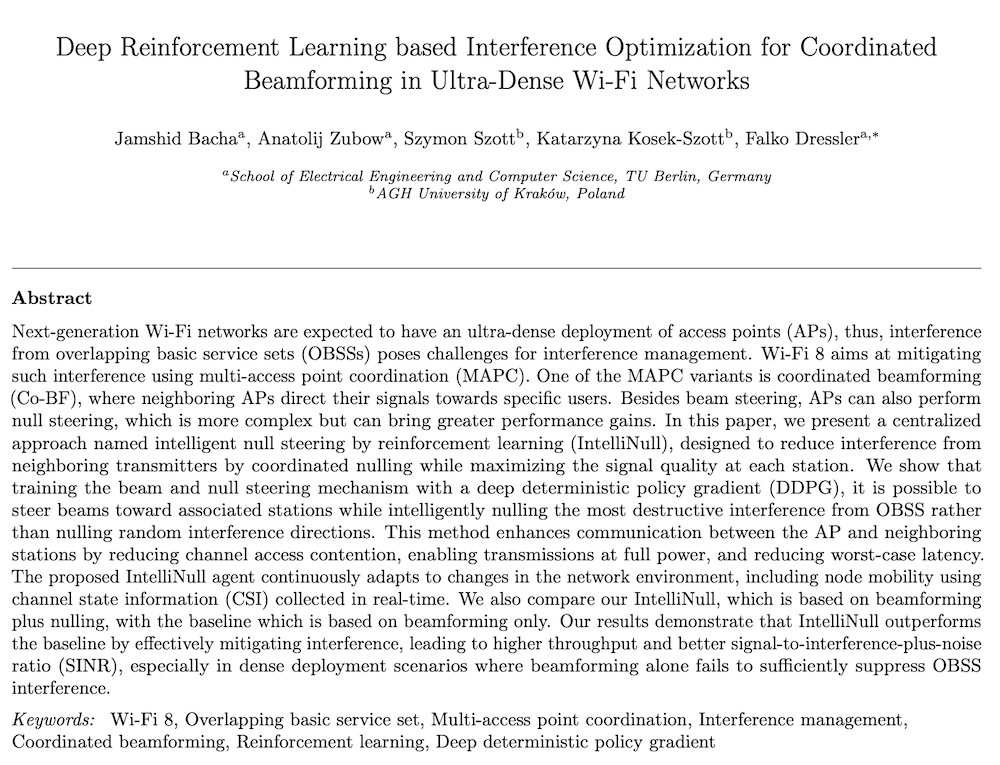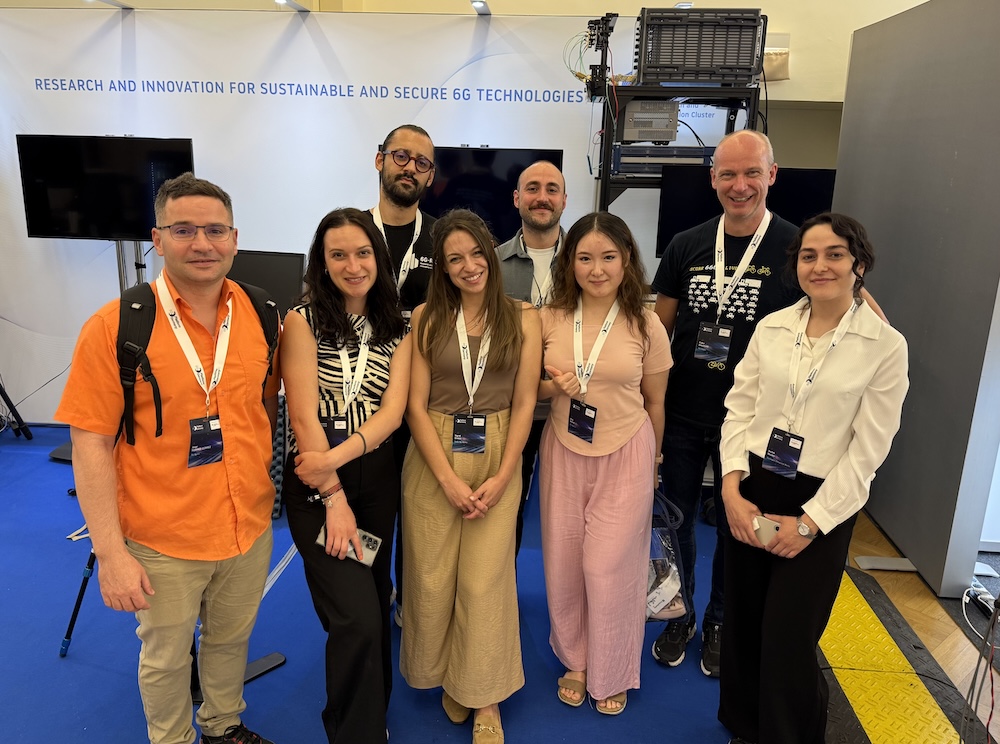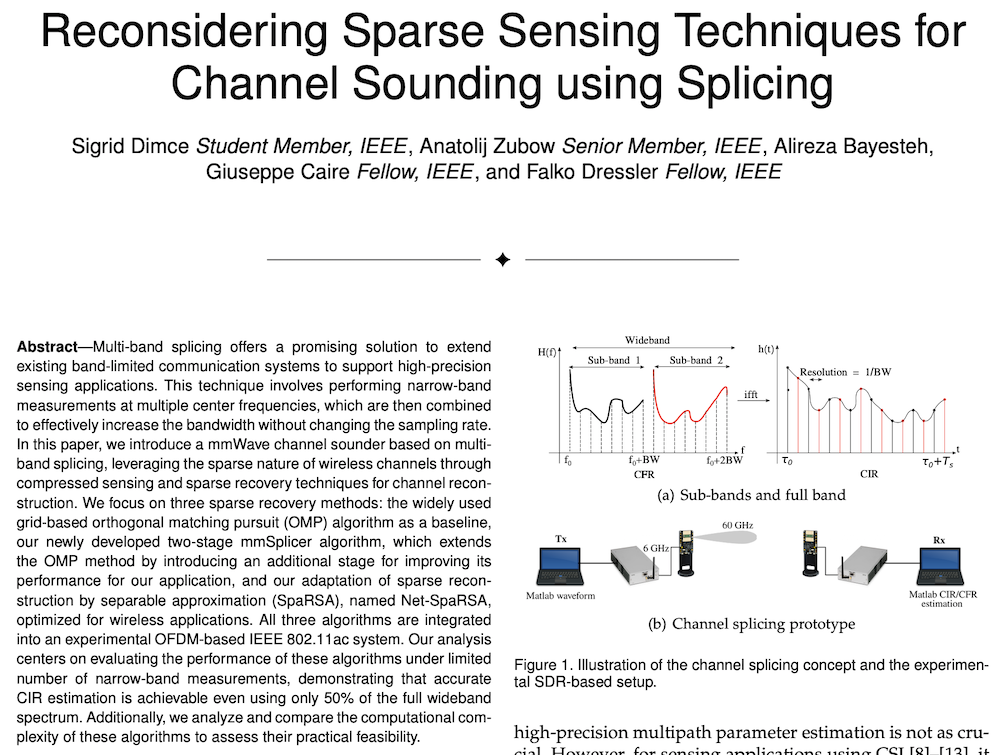Literature Database Entry
kurunathan2021deep
Harrison Kurunathan, Kai Li, Wei Ni, Eduardo Tovar and Falko Dressler, "Deep Reinforcement Learning for Persistent Cruise Control in UAV-aided Data Collection," Proceedings of 46th IEEE Conference on Local Computer Networks (LCN 2021), Virtual Conference, October 2021, pp. 347–350.
Abstract
Autonomous UAV cruising is gaining attention due to its flexible deployment in remote sensing, surveillance, and reconnaissance. A critical challenge in data collection with the autonomous UAV is the buffer overflows at the ground sensors and packet loss due to lossy airborne channels. Trajectory planning of the UAV is vital to alleviate buffer overflows as well as channel fading. In this work, we propose a Deep Deterministic Policy Gradient based Cruise Control (DDPG-CC) to reduce the overall packet loss through online training of headings and cruise velocity of the UAV, as well as the selection of the ground sensors for data collection. Preliminary performance evaluation demonstrates that DDPG-CC reduces the packet loss rate by under 5% when sufficient training is provided to the UAV.
Quick access
Original Version ![]() (at publishers web site)
(at publishers web site)
Authors' Version ![]() (PDF on this web site)
(PDF on this web site)
BibTeX ![]()
Contact
Harrison Kurunathan
Kai Li
Wei Ni
Eduardo Tovar
Falko Dressler
BibTeX reference
@inproceedings{kurunathan2021deep,
author = {Kurunathan, Harrison and Li, Kai and Ni, Wei and Tovar, Eduardo and Dressler, Falko},
doi = {10.1109/LCN52139.2021.9525022},
title = {{Deep Reinforcement Learning for Persistent Cruise Control in UAV-aided Data Collection}},
pages = {347--350},
publisher = {IEEE},
address = {Virtual Conference},
booktitle = {46th IEEE Conference on Local Computer Networks (LCN 2021)},
month = {10},
year = {2021},
}
Copyright notice
Links to final or draft versions of papers are presented here to ensure timely dissemination of scholarly and technical work. Copyright and all rights therein are retained by authors or by other copyright holders. All persons copying this information are expected to adhere to the terms and constraints invoked by each author's copyright. In most cases, these works may not be reposted or distributed for commercial purposes without the explicit permission of the copyright holder.
The following applies to all papers listed above that have IEEE copyrights: Personal use of this material is permitted. However, permission to reprint/republish this material for advertising or promotional purposes or for creating new collective works for resale or redistribution to servers or lists, or to reuse any copyrighted component of this work in other works must be obtained from the IEEE.
The following applies to all papers listed above that are in submission to IEEE conference/workshop proceedings or journals: This work has been submitted to the IEEE for possible publication. Copyright may be transferred without notice, after which this version may no longer be accessible.
The following applies to all papers listed above that have ACM copyrights: ACM COPYRIGHT NOTICE. Permission to make digital or hard copies of part or all of this work for personal or classroom use is granted without fee provided that copies are not made or distributed for profit or commercial advantage and that copies bear this notice and the full citation on the first page. Copyrights for components of this work owned by others than ACM must be honored. Abstracting with credit is permitted. To copy otherwise, to republish, to post on servers, or to redistribute to lists, requires prior specific permission and/or a fee. Request permissions from Publications Dept., ACM, Inc., fax +1 (212) 869-0481, or permissions@acm.org.
The following applies to all SpringerLink papers listed above that have Springer Science+Business Media copyrights: The original publication is available at www.springerlink.com.
This page was automatically generated using BibDB and bib2web.

